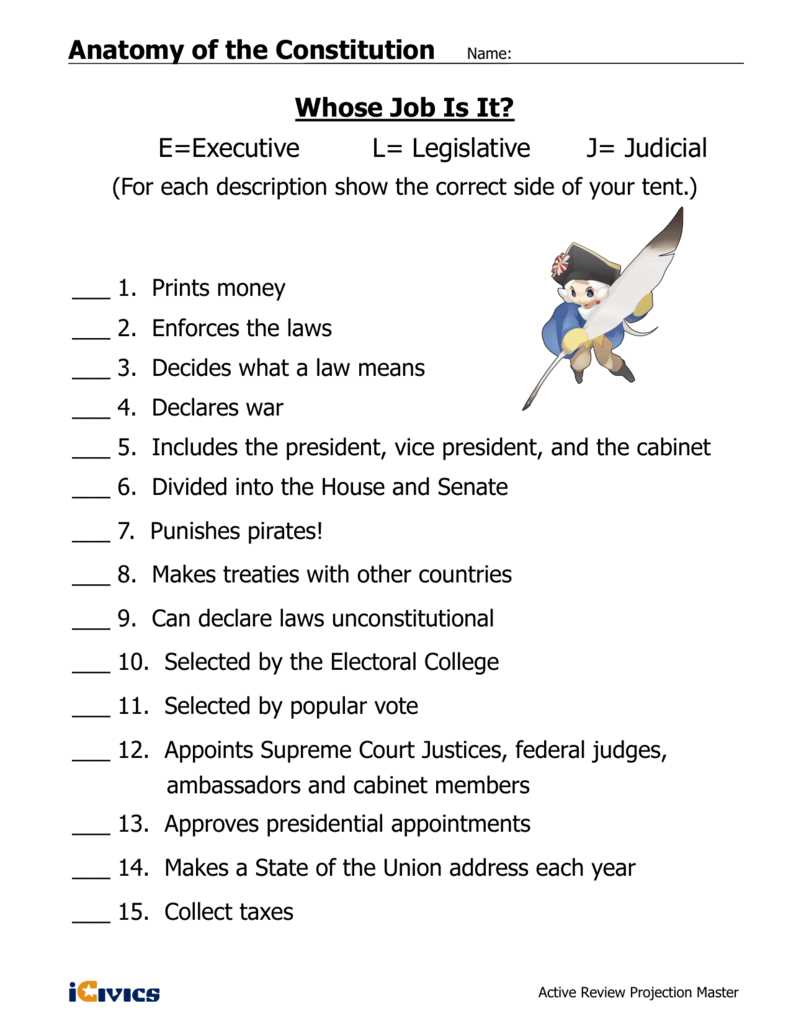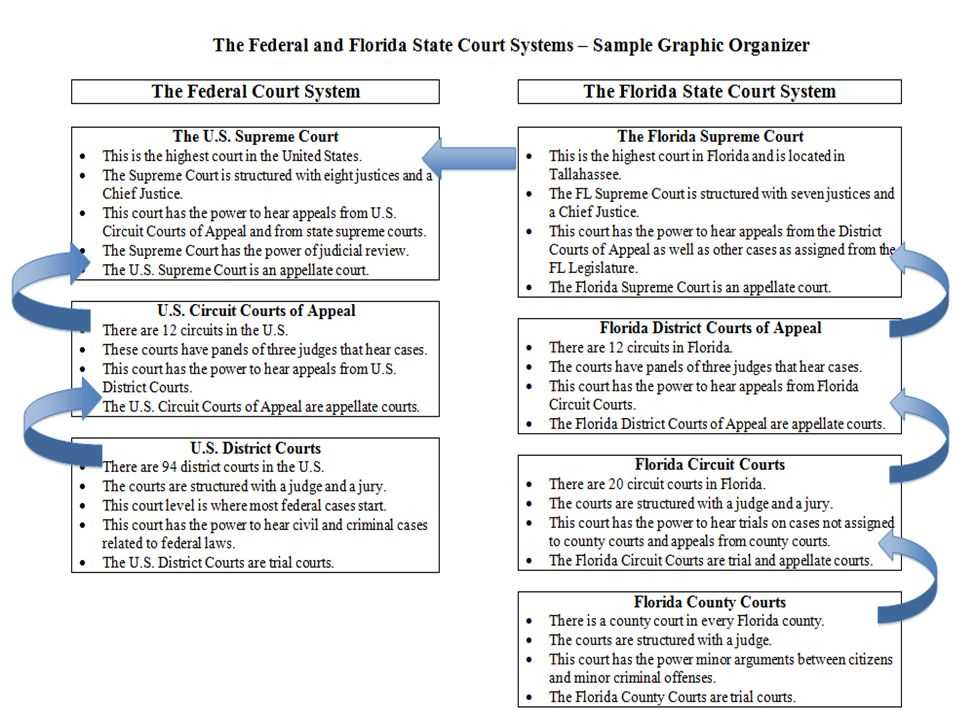
In today’s complex legal system, laws are derived from a variety of sources. Understanding these different sources is essential for anyone studying law or seeking to navigate the legal landscape.
In the iCivics program, students are introduced to the concept of the sources of law. This program is designed to educate young people about the structure and function of the United States legal system. The iCivics answer key provides students with guidance and clarification on the sources of law covered in the program.
One of the primary sources of law is the Constitution. As the supreme law of the land, the Constitution provides the framework for the government and legal system in the United States. The iCivics answer key helps students understand the importance and applicability of the Constitution in shaping the laws of the country.
Other sources of law include statutes, regulations, and case law. Statutes are laws that are passed by a legislative body, such as Congress. Regulations, on the other hand, are rules and guidelines established by administrative agencies. Case law refers to the decisions and interpretations of courts, which serve as precedent for future legal decisions.
Sources of Law icivics Answer Key
Understanding the sources of law is essential for understanding how the legal system works. In the context of the icivics answer key, the sources of law refer to the various authorities that establish and interpret laws in the United States. These sources include the Constitution, statutes, regulations, and judicial decisions.
The Constitution is the supreme law of the land and serves as the foundation for all other laws. It outlines the powers and limitations of the government and protects the rights of individuals. Any law that contradicts the Constitution can be declared unconstitutional and therefore invalid.
Statutes are laws enacted by legislative bodies at the federal, state, and local levels. They address a wide range of issues, such as criminal behavior, civil rights, and taxation. These laws are created through the legislative process, which involves drafting, debating, and voting on proposed legislation.
Regulations, also known as administrative law, are rules created by administrative agencies to implement and enforce statutes. These agencies, such as the Environmental Protection Agency or the Food and Drug Administration, have the authority to make detailed rules and regulations within their specific areas of jurisdiction. These regulations have the force of law and must be followed by individuals and organizations.
Judicial decisions, or case law, are the rulings made by courts in particular cases. When a court interprets the law and applies it to specific factual situations, it creates legal precedents that guide future decisions. These precedents, known as stare decisis, provide consistency and predictability in the legal system. Courts at the federal and state levels can establish legal precedents.
In conclusion, the sources of law in the icivics answer key are the Constitution, statutes, regulations, and judicial decisions. These sources work together to create a legal framework that governs the United States and protects the rights of its citizens.
Understanding the Sources of Law

In any society, laws are essential for maintaining order and ensuring justice. Laws govern our actions, protect our rights, and provide the framework for a functioning society. But where do these laws come from? What are the sources of law?
There are several sources of law that shape the legal system in any given country. These sources serve as the foundation upon which all laws are built and provide the authority and legitimacy behind them. The primary sources of law include constitutional law, statutory law, administrative law, and case law.
Constitutional Law:
The constitution is the supreme law of the land and serves as the fundamental framework for a country’s legal system. It sets out the basic rights and responsibilities of citizens, establishes the structure of government, and defines the relationship between the different branches of government. Constitutional law is derived from the constitution and provides the guidelines for creating and interpreting other laws.
Statutory Law:
Statutory law refers to laws created by legislative bodies, such as Congress or Parliament, at the federal, state, or local level. These laws are passed through a formal legislative process and are written down in codes or statutes. Statutory law covers a wide range of areas, including criminal law, civil law, tax law, and property law.
Administrative Law:

Administrative law is the branch of law that governs the activities of administrative agencies, such as the Environmental Protection Agency or the Food and Drug Administration. These agencies have the authority to create regulations and enforce them in specific areas, such as health and safety, environmental protection, or consumer protection. Administrative law ensures that these agencies act within the boundaries of their delegated powers and protects the rights of individuals affected by their decisions.
Case Law:
Case law, also known as common law, is law developed by judges through their decisions in court cases. When a judge makes a ruling on a case, their decision becomes a precedent that other judges can use to decide similar cases in the future. Over time, a body of case law develops, which serves as a guide for judges in interpreting statutes and constitutional provisions. Case law plays a significant role in shaping the law and filling in gaps where statutory or constitutional law is silent or unclear.
Understanding the sources of law is crucial for any student of law or citizen who wants to navigate the legal system. By knowing where laws come from and how they are created, we can better understand our rights, obligations, and the functioning of our legal system.
Constitutional Law
Constitutional law refers to the body of laws and principles that govern the interpretation and application of a country’s constitution. The constitution is the fundamental law of a nation and serves as the foundation for its legal system. It outlines the structure of government, establishes the rights and responsibilities of citizens, and sets the limits of governmental power.
Constitutional law is important because it ensures that the government operates within the bounds of the constitution and respects the rights of its citizens. It provides a framework for the separation of powers, checks and balances, and protects individual freedoms. It also serves as a safeguard against arbitrary or unconstitutional actions by the government.
Key sources of constitutional law include the actual text of the constitution itself, as well as judicial decisions, statutes, and legal precedents that interpret and apply the constitution. Courts play a crucial role in constitutional law by interpreting the constitution and resolving disputes between individuals and the government. Their decisions can shape the meaning and impact of constitutional provisions.
Constitutional law is a dynamic field of law that evolves and adapts to societal changes and new legal challenges. It is an essential component of a democratic society, ensuring that the government operates within the parameters set forth in the constitution and protects the rights of its citizens.
Statutory Law
Statutory law refers to laws that are passed by legislative bodies, such as the United States Congress or state legislatures. These laws are written down and codified, making them official rules that must be followed by individuals and organizations within the jurisdiction.
Statutory laws are created in order to address specific issues or concerns within society, ranging from criminal offenses to civil regulations. They are typically broad in scope and can cover a wide range of topics, such as taxation, employment, education, and public safety.
When a legislative body passes a statute, it becomes part of the statutory law. Statutory laws are considered primary sources of law, meaning they are the authoritative rules that govern a particular jurisdiction. They are enforceable by the courts and violations can result in penalties or legal consequences.
Statutory law is an important source of law because it is created by a representative body and reflects the will of the people. It provides a framework for individuals and organizations to conduct themselves in society and ensures that there is a uniform set of rules that govern behavior. Without statutory laws, there would be chaos and confusion, as there would be no clear guidelines or standards for individuals to follow.
- Statutory laws are created by legislative bodies
- They address specific issues or concerns within society
- They cover a wide range of topics
- Violations of statutory laws can result in penalties or legal consequences
- Statutory laws provide a framework for behavior in society
Administrative Law
Administrative law is a branch of law that deals with the rules and regulations created by administrative agencies, which are government bodies that are responsible for the implementation and enforcement of specific laws. These agencies play a crucial role in the functioning of government and have the power to create and enforce regulations that impact various aspects of society.
Administrative law helps ensure that administrative agencies operate within the bounds of the law and that their actions are fair, transparent, and accountable. It provides a framework for citizens and businesses to challenge agency actions if they believe their rights have been violated or if they disagree with a decision made by the agency.
Key concepts in administrative law:
- Delegation of authority: Administrative agencies are delegated authority by the legislative branch of government to create rules and regulations in specific areas.
- Rulemaking and regulations: Administrative agencies have the power to create rules and regulations that have the force of law.
- Adjudication: Administrative agencies have the power to make decisions and resolve disputes through administrative hearings and processes.
- Judicial review: Courts have the authority to review agency actions and determine whether they are in line with the law and the Constitution.
In summary, administrative law helps regulate the actions of administrative agencies, ensuring they act within their delegated authority and in accordance with the law. It provides a mechanism for individuals and businesses to challenge agency actions and seek redress if they believe their rights have been violated. By holding administrative agencies accountable, administrative law helps maintain a balance of power and promotes fairness, transparency, and adherence to the rule of law.
Case Law

In the United States, case law refers to the body of judicial decisions that have been made by courts over time. It is an essential source of law and plays a crucial role in shaping the legal system.
Case law is created when judges interpret and apply laws to resolve specific disputes. These decisions serve as precedents, which means they become binding on lower courts and guide future similar cases. This practice of following precedent is known as the doctrine of stare decisis.
Key features of case law include:
- Binding authority: Case law established by a higher court is binding on lower courts within the same jurisdiction.
- Persuasive authority: Case law from other jurisdictions or from lower courts is not binding, but may be influential and persuasive.
- Evolutionary nature: Case law is not static and can evolve over time as new cases are decided.
- Application of legal principles: Case law helps in the interpretation and application of statutory laws.
Overall, case law plays a vital role in the development of the legal system and provides stability and predictability. It ensures consistent decision-making and helps in maintaining fairness and justice. By relying on previous decisions, judges can uphold legal principles and provide guidance to the public.